Aliens Seeding Earth
Why life on Earth was almost certainly seeded by extraterrestrials.

Am I crazy?
First, let me explain why the idea is NOT out of the questions or crazy. It violates no known laws of science first of all. Further, it’s not something that most people think about; aliens that is. Most of our knowledge of extraterrestrials (ETs) comes from movies, comic books, video games, and other media designed to entertain. As a result, the person broaching the subject in a serious manner is often unfairly ridiculed. I implore you to keep an open mind and look at the facts as your read this article. Also keep in mind that I am not against religion. I am certainly open to the possibility that a kind of super consciousness (God if you will), created life within the universe through conscious will. However, there is currently no way to support this with science yet (assuming that it could be done some day) and so I do not address that issue here. I also do not address government cover-ups or conspiracies here. I’m not outright rejecting their existence, its just not necessary to discuss them for the purposes of providing support for my main argument.

How did life get started on Earth?
We are often told that life evolved independently on Earth from macromolecules that developed due to random chances during the Hadean eon billions of years ago. However, there is currently no model or experiment that demonstrates this would occur given enough time. Miller-Urey, you say? That experiment was interesting, but while it did yield amino acids, it failed to produce any useful proteins and there is evidence that with more time, the amino acids would actually react with other molecules within the environment rather than self-organize into useful proteins. Further, there is no model for how the first nucleic acids such as RNA would have formed from inorganic or even organic material.

This, however, is not even the meat of my argument – it’s just an appetizer. Before we move on, I'd also like to point out that I am not suggesting that natural selection as a mechanism of evolution is false. However, natural selection by definition only works with units that are capable of reproducing themselves and there is currently no accepted model for how self reproducing cells first came into existence on Earth. This is actually the part where I receive the most heat because so many people are not familiar with the attempts to demonstrate origin of life through inorganic molecules.
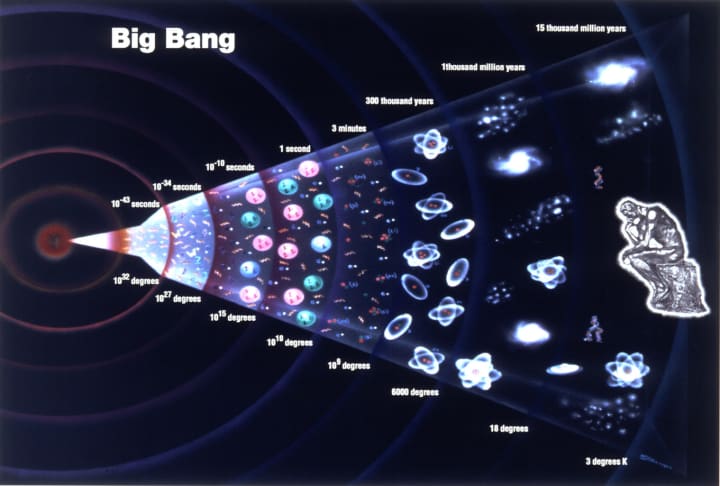
How old is the universe?
The generally accepted age of the universe is about 13.7 billion years. Most scientists agree that the initial conditions within the universe would have prevented the existence of biological life as we know it. The fundamental forces were most likely unified, and temperatures were very high. Also, star system formation would’ve taken millions of years and even after that, it would’ve taken time for habitable planets to develop with the correct conditions necessary to produce a natural ecosystem with nutrient cycling protected from cosmic rays and ultraviolet light. Indeed, the first planets capable of supporting life as we know it would not have existed for billions of years after the Big Bang (this assumes that the Big Bang occurred. Some credible scientists reject the Big Bang Theory, but this is not my argument here).
How old is Earth?
The Earth is roughly 4.5 billion years old and the earliest evidence of life that we have found on Earth dates back to about 3.8 billion years. This life was unicellular of course but think about this for a moment – our star system is relatively young. That’s right, folks -there are stars out there that are significantly older than ours. If we assert that life can begin on its own given the right conditions, then these conditions would have almost certainly led to the development of life in other star systems BEFORE it developed on Earth. What I’m arguing is this – there’s very little reason to suspect that if life could evolve independently on a planet, that it would’ve developed in the Sol star system first given how young Sol is. To argue otherwise would be the equivalent of suggesting that your younger brother, given equal opportunity, would graduate high school before your father. Sure this is certainly possible but highly improbable.
Exoplanets are Real
You'd be surprised at how many people don't know what an exoplanet is. Ask the average person which planet is furthest from the sun, and most will say Neptune or Pluto. Ask the average person if they can think of any planet AT ALL that is outside of Sol, and most will say "no" if they're being honest. We shouldn't think any less of these people; like I said in the beginning, most people just don't spend much time pondering these issues. But exoplanets are real. Thousands of them have been discovered since the 90s, and many of them are in the habitable zone (not too close or too far away from their mother star).
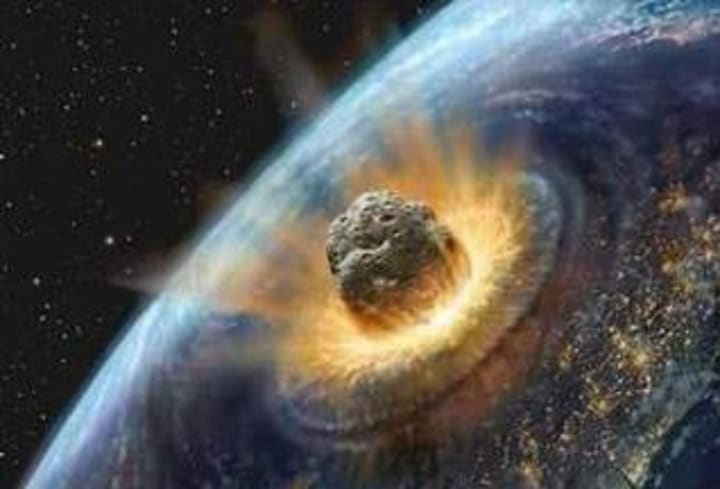
Threats to Life?
Yeah, I know there are some that introduce the subject of gamma ray bursts (GRB) and supernovae as reasons why Earth might be the only place in the entire universe where complex life exists. Despite the number of stars in the universe and the abundance of chemicals necessary for life to exist outside of Earth, there is the issue of mass extinction. Even here on Earth, there have been at least five major extinction events, one of which (Permian extinction) nearly destroying all complex life on Earth. The Ordovician extinction, which occurred millions of years earlier wiped out several marine species and is believed to have been caused by a GRB. Let’s not forget about the most famous mass extinction of all – the KT extinction event, which killed off several species of dinosaur and marine reptiles.
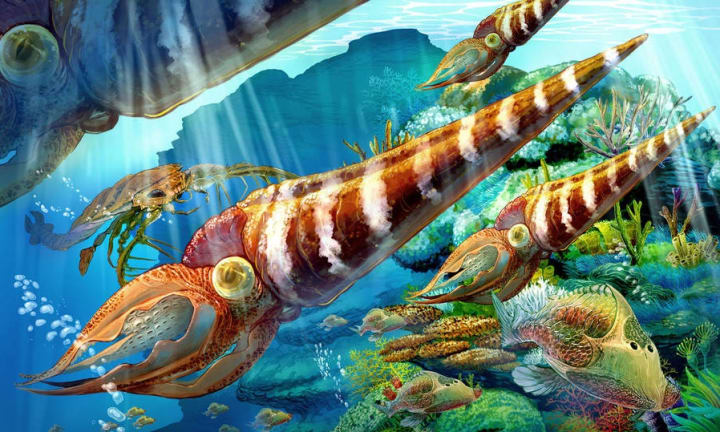
If these threats to life are common throughout the universe, then one has to address them if he’s going to assert that aliens could have developed an advanced civilization and spread life throughout the cosmos. These events become less common as time goes on because they require stars of a particular mass threshold. The rate of GRBs now is certainly lower than it was 4.5 billion years ago and not all planets are in range of a supernova’s destructive effects. Life certainly could have developed beyond Earth and it is naïve to think that given the number of exoplanets discovered (over 2000 to date) and the number yet to be discovered that the conditions for life would have only existed for the past 3.8 billion years within a single star system.

It is often assumed that biological intelligence resulting from a complex nervous system would not have evolved on Earth if not for the K-T extinction event, but I don't think this is the case. You see, there is no rule or law in biology that says intelligence can only be exhibited by mammals or homeothermic organisms. Intelligence is something that can evolve and increase if selection pressure for the trait is high. Where am I going with this? If the K-T extinction event had not occurred, it is very possible that intelligence necessary to explore the galaxy would have developed on Earth much sooner than it did.

Aliens have probably already "been there."
We are planning to explore and spread life throughout the galaxy. If there are much older civilizations, certainly they would've done it by now. In fact, given the numbers, there should be a vast number of highly advanced civilizations out there that predate the K-T extinction event, which was only 65 million years ago. This might seem like a long time to some people, but it's really not in terms of a star's lifespan. Again, if we assume that life can naturally evolve on its own, then this would have happened for the first time in the universe several millions of years ago given the age of some star systems. I doubt these civilizations would have just stayed within their own neck of the woods. They most likely would have done what we ourselves are trying to do - explored the universe and spread life to other star systems without life (intentionally or inadvertently).

I often look at ants and wonder what the life of an ant is like. Do they respond only to basic stimuli? Sure, they are aware of temperature extremes, light, chemicals through smell, and perhaps hunger and thirst. Are they aware of much more beyond that though? Do their nervous systems allow them to perceive 3-dimensional space? Can they even perceive distance and time or are they oblivious to it?
What about hirsute apes such as chimpanzees? Chimpanzees can learn sign language, perceive distance, and even recognize themselves within a mirror (few animals have demonstrated this ability) and so are self-aware. Can a chimpanzee be simultaneously aware of several things at once though? Can it perform complex mathematics and apply these abstract concepts to the real world in order to solve problems?
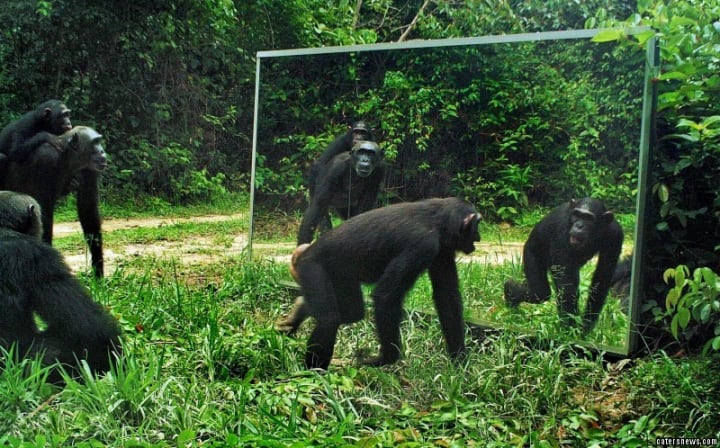
Now let's look at us humans. We can certainly perform complex mathematics. Some of us can even perform these operations without paper or calculators, but what is the limitation of our awareness? How many facts can we be simultaneously aware of to perceive interconnectedness? Can we perceive spatial dimensions beyond just 3? We have developed technology to harness a miniscule quantity energy from the sun and earth, but what about harnessing energy from the zero point vacuum? What about harnessing energy from the entire star itself (Dyson Sphere, anyone?). Is the Homo Sapien nervous system capable of processing enough information per unit time to provide an awareness necessary to understand what the universe really is?
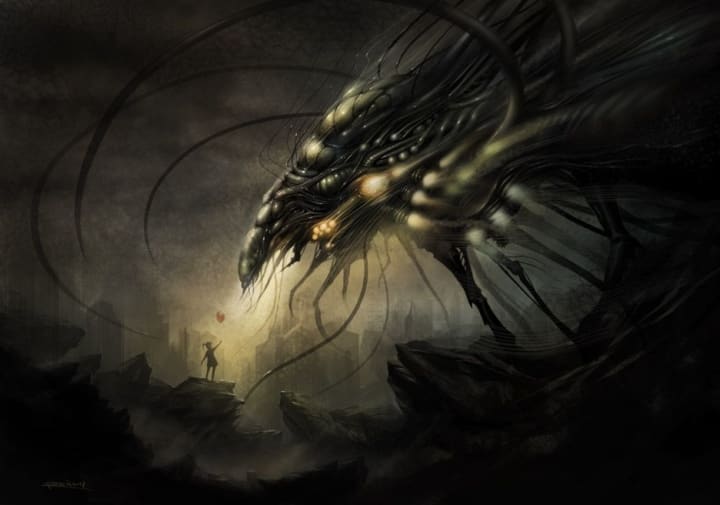
God-like aliens?
We seem to have a hierarchy of awareness levels here on Earth that ends with human being at, or at least near, the top. Does this awareness level end on Earth? If intelligence first evolved in another star system millions of years ago, then it is likely that these biological entities would have either continued to increase the information processing speeds of their nervous systems using their technology or this could have happened naturally through natural selection (the latter being less likely the case as there doesn't seem to be selection pressure for understanding the interconnectedness or space-time geometry, energy, and matter). Either way, their understanding of the nature of the universe would be vastly greater than ours and therefore, their abilities and accomplishments would also be vastly greater. Such entities might even appear "god-like" in the sense that they would be able to effortlessly control all aspects of our lives that we perceive to be important in the same way that a human can control all aspects of a bacterium's life that it perceives to be important with little effort (food, moisture, temperature, luminosity, etc.) with little or no awareness by the organism of the controller. Such entities almost certainly exist given enough time...Don't you think? Tell me what you think about this subject.
About the Creator
Steven Allen
Steven Allen hold's a bachelor's degree in Biology with a minor in Astrophysics from Florida International University. He also holds a Master's Degree in Public Health with a specialty in epidemiology.






Comments
There are no comments for this story
Be the first to respond and start the conversation.